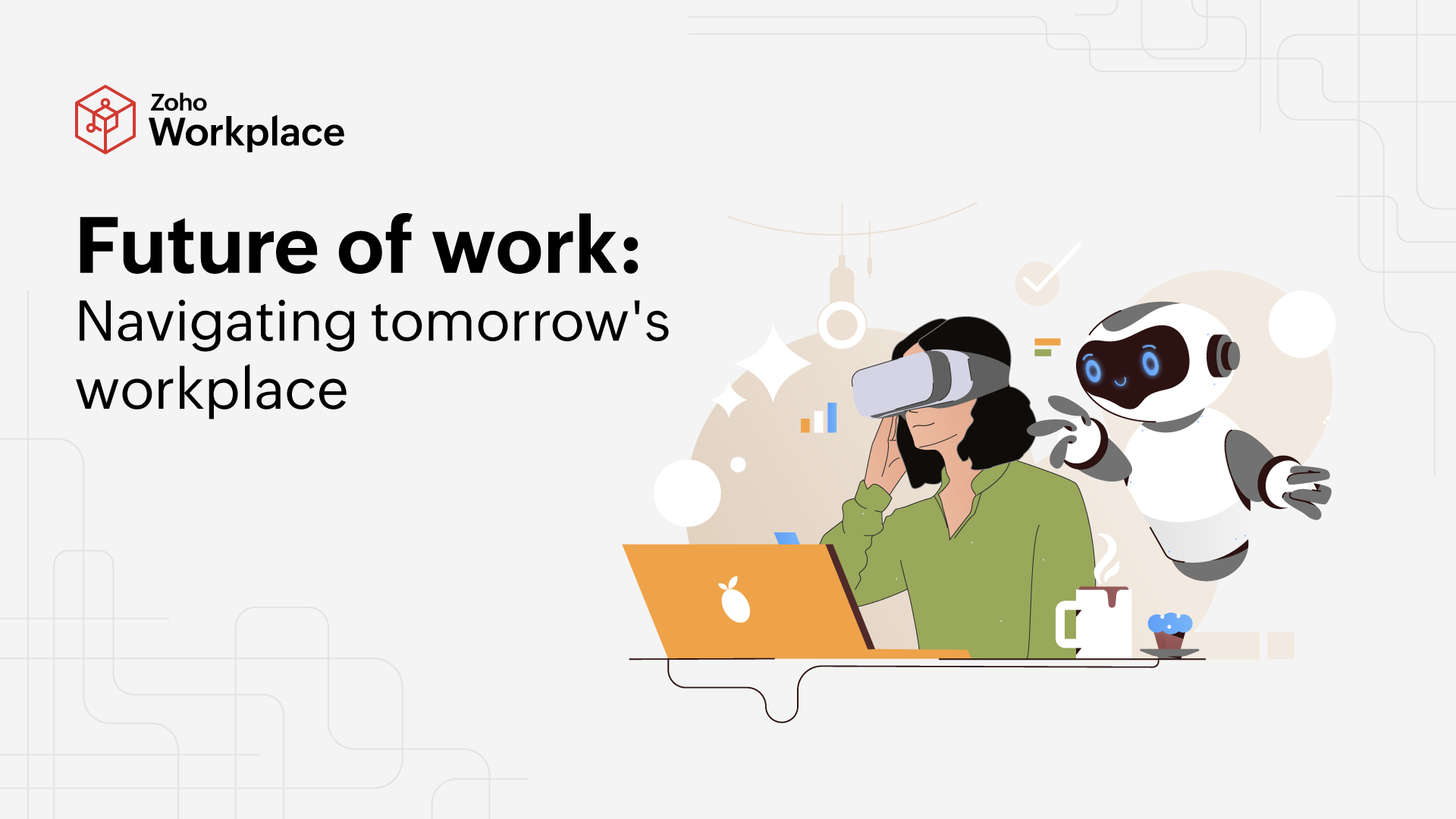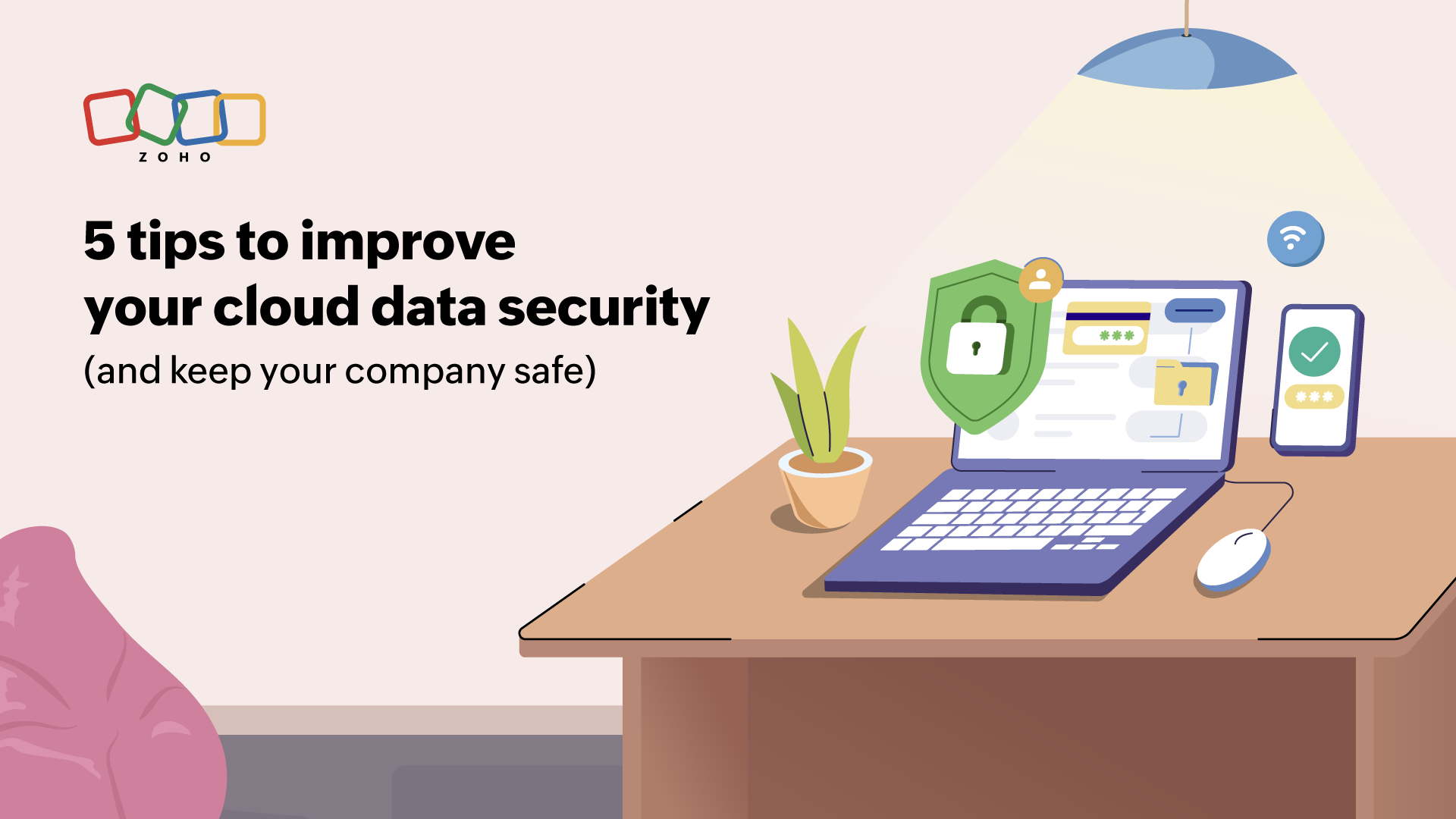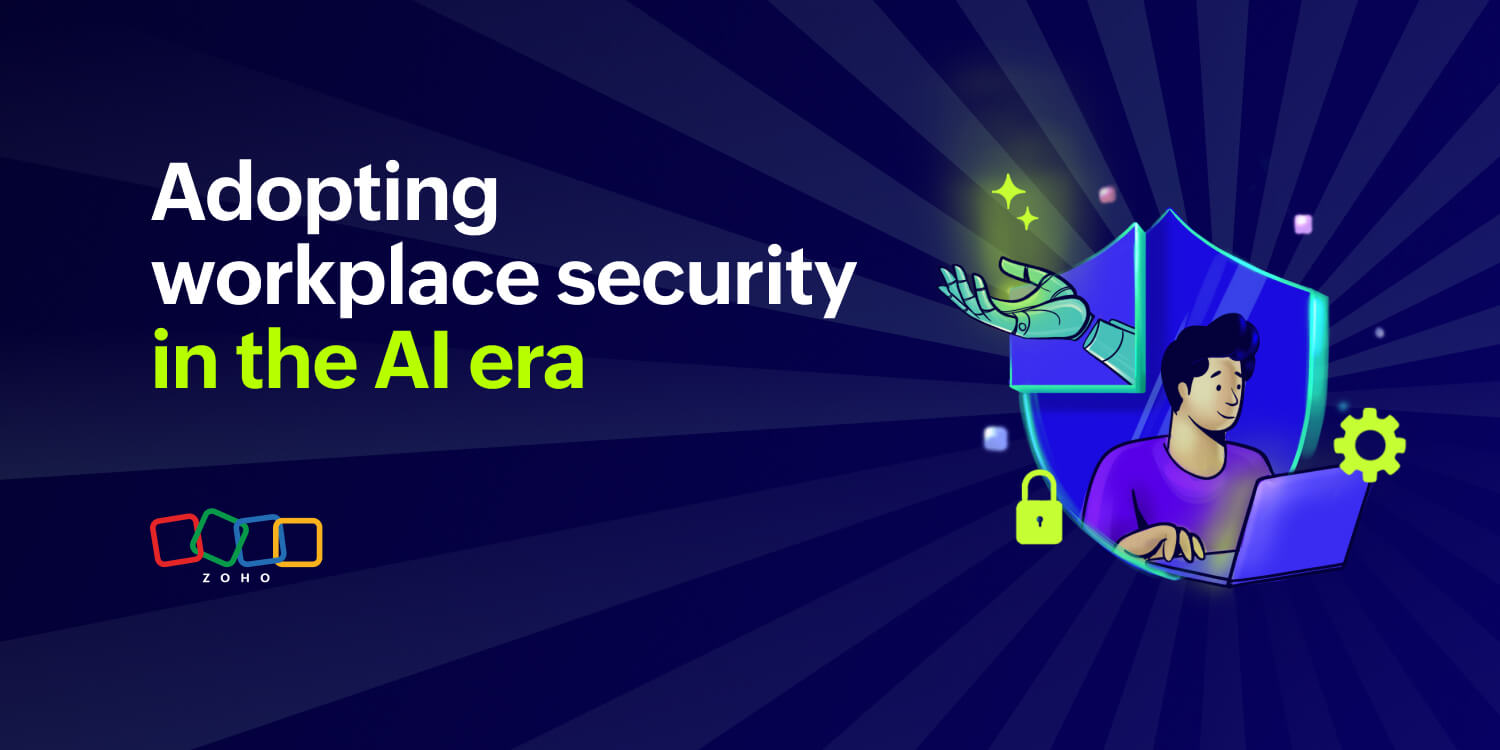- HOME
- All Topics
- Workplace Security
- The future of work: Navigating tomorrow’s workplace
The future of work: Navigating tomorrow’s workplace
- Published : August 20, 2024
- Last Updated : December 13, 2024
- 639 Views
- 6 Min Read
You just walked into an office a few decades ago: rows of desks, piles of files, formal attire, packed lunchboxes, and a strict 9-to-5 schedule. Fast-forward to today, and the scene has transformed drastically. Now, companies use digital work files, employers offer free lunches, employees often dress casually, and they enjoy flexible work hours. Rapid technological advancements, shifting social norms, and new business models are driving this transformation, prioritizing employee well-being and convenience.
“Change is the only constant,” and this perfectly suits today’s reality. To thrive in this dynamic environment, it’s essential to understand these shifts. In this article, we’ll explore how the future of work is shaping up, including the rise of remote work, advancements in digital technologies, and the impact of emerging trends and ethical considerations.
Remote work: A new norm
Remote work has been around for a long time, but it accelerated with the pandemic. Even post-pandemic, it remains popular due to its convenience and benefits. Imagine setting up your laptop at your favorite cafe, with a warm cup of coffee by your side, or working from a quiet room at home while your kids play in the next room. Remote work offers this flexibility, allowing for better work-life balance, reduced commute times, and the ability to work from anywhere.
For example, Buffer’s transparent culture and GitLab’s global team structure highlight how remote work can be both scalable and efficient. However, it also presents challenges like keeping teams connected, managing productivity, and ensuring the security of company resources. As remote work continues to evolve, we’re likely to see more sophisticated tools and strategies to tackle these issues, making remote work an even more viable, widespread, and attractive option.
Digital technologies: The new tools of the trade
Digital technologies were already on the rise, but the shift to remote work during the COVID-19 pandemic accelerated their adoption and paved the way for even more transformative tools. Today, using digital whiteboards to brainstorm with colleagues across the globe and accessing work files from any device have become widespread. Technologies like cloud computing and collaboration platforms are now essential in modern workplaces. They enhance productivity, streamline workflows, and enable real-time communication.
For example, companies like Salesforce have incorporated advanced digital collaboration tools and flexible work hours to adapt to changing employee needs and preferences. Investing in these technologies is crucial for businesses to stay competitive and efficient in the modern work environment.
E-commerce: The digital marketplace
As the world became busier, convenience became key, and everything started going digital. E-commerce emerged as a powerful force, paving the way for both small and large businesses to reach a broader audience. It hasn’t only expanded business opportunities but also created jobs in the shipping and delivery sectors.
Today, online shopping has become second nature—whether it’s groceries or gadgets, everything is just a click away. E-commerce has revolutionized the way we shop and do business. Companies are increasingly focusing on online sales and engaging customers through digital platforms. This shift demands new skills in managing online stores, enhancing customer experiences, and making data-driven decisions. As e-commerce continues to reshape the business landscape, continuous adaptation and innovation will be essential.
Automation and AI: Transforming industries
With the rapid growth and changes in the workplace, there has been a rising demand for skills in innovation, creativity, problem-solving, and critical thinking to build new tools and meet the needs of a dynamic environment. To support this, automation and AI have become invaluable tools, taking over repetitive and manual tasks.
Imagine being an office worker who no longer has to focus on mundane, repetitive tasks—instead, you can focus on more creative and strategic work. AI tools can manage data entry, scheduling, and other routine duties, freeing you to engage in tasks that require human insight and innovation.
Automation and AI are transforming industries by increasing efficiency and creating new opportunities. While this technological shift boosts productivity, it also raises concerns about job displacement and the need for continuous learning to stay relevant.
How are market shifts transforming modern workplaces?
We’ve seen major shifts in the market and industry, including the rise in remote work, the growth of e-commerce, and the rapid adoption of AI and automation. These shifts have not only reshaped how businesses operate but have also significantly impacted employees. Now, let’s dive into the changes these developments have brought to the workplace and how they’ve transformed the employee experience today.
The changing nature of jobs
With digital transformation, job roles and requirements continue to evolve. Future job markets will prioritize skills in data analysis, AI, cybersecurity, and digital marketing. Automation will primarily affect jobs involving routine tasks, while roles requiring creativity, problem-solving, and interpersonal skills will be in high demand.
Freelancing and digital nomadism
Imagine yourself working from a beach in Bali or a mountain cabin in the Alps. Freelancing and digital nomadism offer the freedom to work from anywhere, appealing to those seeking flexibility and a better work-life balance. These lifestyles require self-discipline, good time management, and the ability to juggle multiple clients or projects. Despite the challenges, they represent a growing trend in the future of work, driven by advances in technology and changing employee preferences.
Hybrid work models
Imagine splitting your week between working from home and the office, enjoying the best of both worlds. Hybrid work models combine remote and in-office work, providing flexibility while maintaining team cohesion. This model offers employees the freedom to choose their workspace based on their tasks and personal preferences, enhancing job satisfaction and productivity.
For example, Microsoft has adopted hybrid work models that integrate remote work with in-office collaboration, enhancing flexibility and team connection.This approach is likely to become a standard as businesses continue to seek ways to blend convenience with collaboration, responding to evolving employee needs and expectations.
Work-life balance and flexibility
Let’s say you do a job that not only pays the bills but also allows you to spend quality time with your family and pursue personal interests. Achieving a healthy work-life balance is crucial for overall well-being. Flexible work arrangements, such as remote work and adjustable hours, help employees manage their personal and professional lives. Companies that offer these options often see higher job satisfaction, better employee retention, and increased productivity.
Ethical and corporate responsibilities
In today’s workplaces, data privacy and security are crucial. As technology evolves, ethical issues become even more pressing. Companies must protect sensitive information and defend against cyber threats to maintain trust and safeguard data. Compromising on these priorities can lead to severe breaches and damage to a company’s reputation.
Moreover, the rise of automation brings up ethical concerns about job displacement. Companies must ensure that workers whose roles might be affected by technological changes are treated fairly. Balancing automation with employee welfare is essential to prevent unfair job losses and support affected workers through reskilling and transition programs. Ethical practices in technology use are vital for maintaining a positive work environment and securing long-term success.
Preparing for the future: Adapting to change
Companies play a significant role in preparing their employees for the future. This means staying adaptive and proactive. Embracing new trends, investing in skill development, and committing to continuous learning are essential for maintaining relevance and competitiveness. Flexibility and resilience will be key factors in achieving future success.
Lifelong learning is crucial for staying ahead in a rapidly evolving job market. Professionals should actively seek opportunities to upskill through education, online courses, or on-the-job training. Continuous learning ensures that individuals remain adaptable, relevant, and equipped to handle new challenges and opportunities in the business landscape.
Conclusion
The future of work continues to change rapidly because of technological advancements and shifting social dynamics. By understanding and preparing for these changes, individuals and businesses can navigate the evolving landscape effectively. Embracing flexibility, staying informed, and prioritizing ethics are key to thriving in the future workplace. Proactive engagement with these trends will help ensure continued relevance and success.
 Janani
JananiJanani is a product marketer for Zoho Workplace. She enjoys expressing her thoughts creatively while maintaining simplicity for better understanding. Janani has a passion for dance and connecting with nature. And of course, she loves her food!














